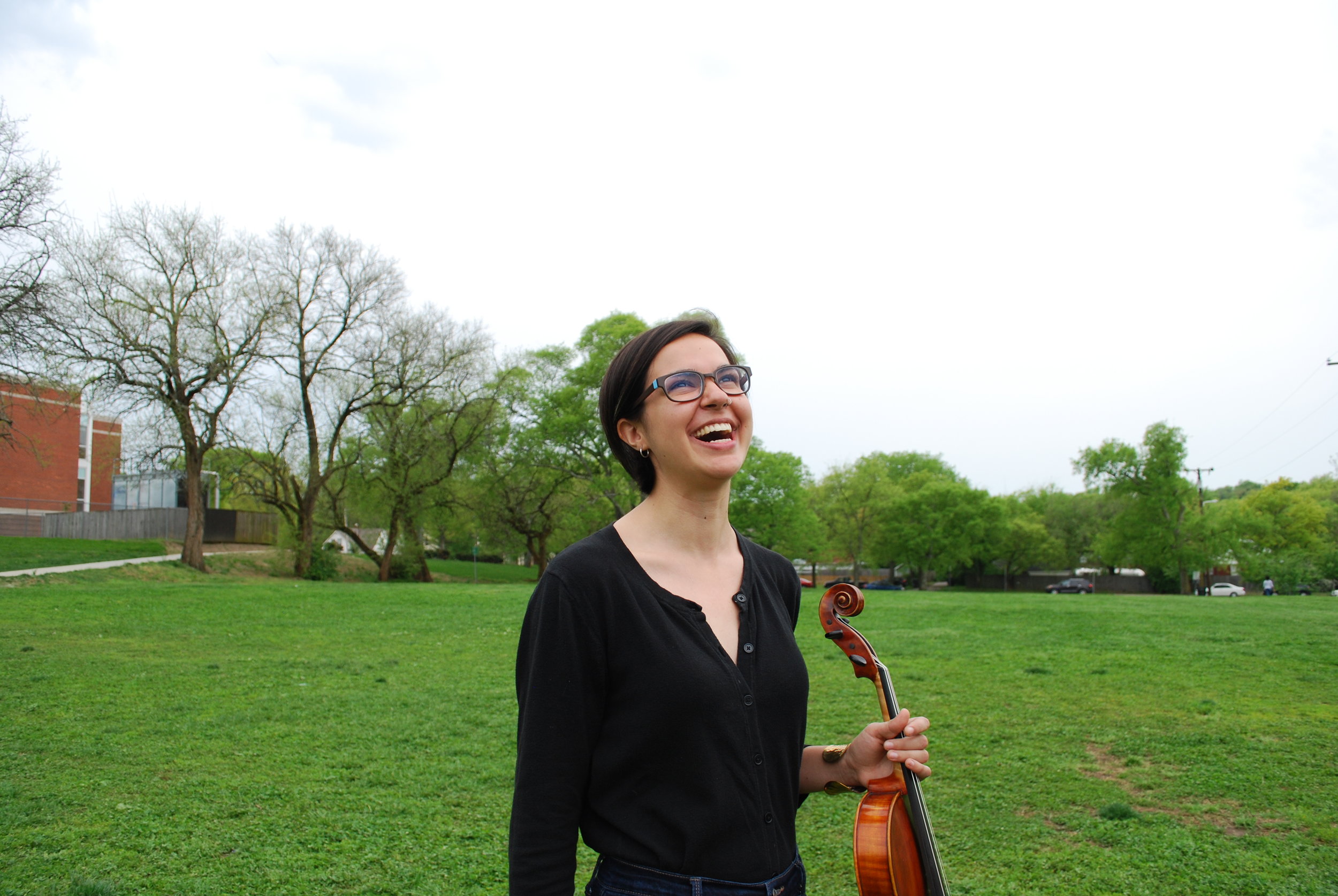Viola and Violin Pedagogy
Philosophy
Taking viola or violin lessons is about so much more than learning to play new pieces. It’s a chance to develop your curiosity, tenacity, discipline, and emotional sense of self through music. I think every single person can benefit from musical training, whether it takes the form of private lessons, music appreciation classes, or jam sessions with friends. As a teacher, I strive to help a student grow as a person as well as a musician by teaching good practice techniques, efficient playing methods, and performance practice informed by theater and music cognition.
I started on violin when I was 4, and I first picked up a viola in middle school. I never thought I would be a professional musician, but I enjoyed playing, especially fiddle music and improvisation. As I started to learn more modern repertoire on the viola and play more chamber music, I began to practice more and enjoy the problem solving elements of learning a piece. Overall, I believe the most valuable aspect of music is being able to share the experience of a piece with others, through performances or playing in ensembles.
I don’t think that there is one right way to teach violin or viola, but a good method should: 1) begin with encouraging awareness and imagination, 2) build interpretive skills from both musical and technical perspectives, and 3) challenge every student to exceed their current expectations of their own playing.
Experience
I have taught viola and violin students ages 2-60 in Nashville, Rochester, Baltimore, and Midland. I completed Rebecca Henry’s “Violin and Viola Pedagogy” sequence as part of the Peabody Institute’s Viola Pedagogy concentration, and have attended additional workshops on Karen Tuttle and Paul Rolland’s pedagogical approach to string instruction. Additional areas of expertise include music theory pedagogy and improvisation.
Lessons
As of June 2022, I am not currently accepting new students.


